#Melvyn Bragg
Photo

George Harrison, 1969; photo by Harry Goodwin (presumably).
In 1969, George named his three Desert Island Discs; and, as it happens, in the 1970s, several people named some of George’s songs as one of their Desert Island Discs.
George’s 1969 choices were:
“Let’s see, Ravi Shankar playing Raga Drbari Kanada [listen here]… and I’d like to have Sathya Sai Baba singing devotional songs. And what else? Maybe Blonde On Blonde [the full album playlist on YouTube].”
Here are Harrisongs chosen by others, including George’s friends Eric Idle, Ravi Shankar, and Barry Sheene:
Barry Sheene - “Crackerbox Palace” (broadcast October 1977) [episode]
Eric Idle - “Dear One” (broadcast November 1976) [episode]
Jimmy Tarbuck - “My Sweet Lord” (broadcast August 1972) [episode]
Ravi Shankar - “My Sweet Lord” (broadcast February 1971) [episode]
Laurie Lee - “Isn’t It A Pity” (broadcast January 1971) [episode]
Melvyn Bragg - “My Sweet Lord” (broadcast August 1976) [episode] (x)
#George Harrison#quote#quotes by George#Ravi Shankar#Bob Dylan#Sathya Sai Baba#Barry Sheene#Eric Idle#Jimmy Tarbuck#Laurie Lee#Melvyn Bragg#George and Ravi Shankar#George and Bob Dylan#George and Eric Idle#Desert Island Discs#1969#1960s#1970s#George's jukebox feature#fits queue like a glove
52 notes
·
View notes
Text
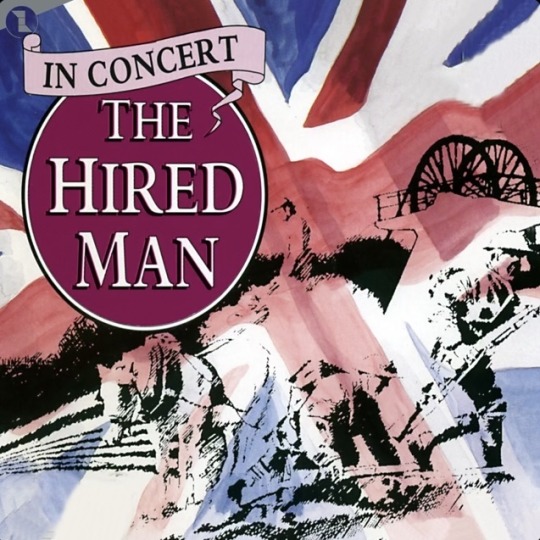
#musical theater#do you know this musical#poll#the hired man#melvyn bragg#howard goodall#language: english
16 notes
·
View notes
Text
and the ‘In Our Time’ podcast gets some extra-time now with a few minutes of bonus material from Melvyn and his guests 📻
3 notes
·
View notes
Text
Hello, in James Joyce's Ulysses he writes: "Greater love than this, he said, no man hath that a man lay down his wife for his friend. Go thou and do likewise. Thus, or words to that effect, saith Zarathustra, sometime regius professor of French letters to the university of Oxtail." It is profane, it gets the Bible wrong on purpose, it nods in the direction of Nietzsche and it doesn’t quite seem to make sense - it must be modernism!
#I love melvyn bragg's abrupt starts#in our time#melvyn bragg#literary modernism#modernism#John Carey#Laura Marcus#Valentine Cunningham#2001#podcast#walking with british voices in my ear feeling fancy
2 notes
·
View notes
Text
Nostalgia
I have a great deal of nostalgia for Wigton. I had a very rich childhood in everything that mattered. I liked being able to knock on friends’ doors to ask if they were coming out to play. Looking back, I seem to have spent an awful lot of time playing. Wigton gave me a sense of friendliness towards everybody. You just nodded to people and said hello. That ease was helpful.
— Melvyn Bragg, from ‘At 83, time goes round too quickly’, in an interview by Kate Kellaway in the ’The Guardian · March 4, 2023
4 notes
·
View notes
Video
Gore Vidal on Harry Truman
#tiktok#gore vidal#harry truman#CIA#Melvyn Bragg#us imperialism#imperialism#colonization#colonialism
4 notes
·
View notes
Text
"The Debussy Film" (1965) - Ken Russell
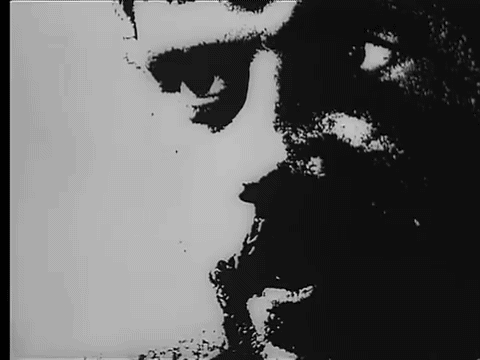
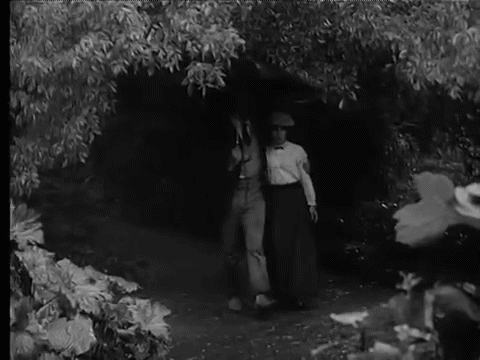
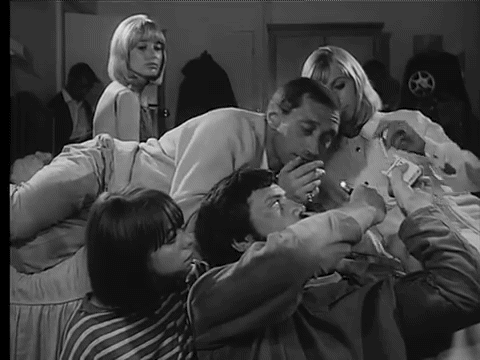

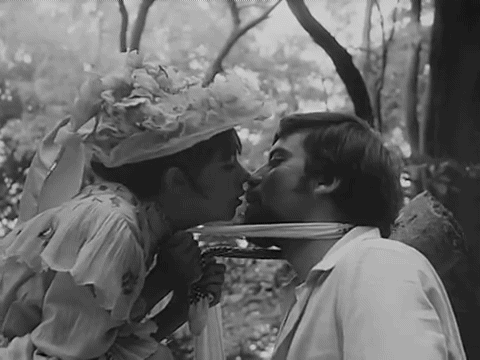
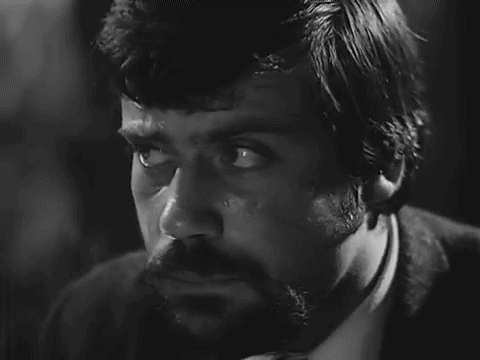
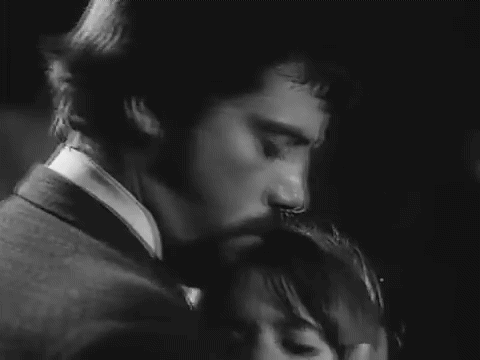
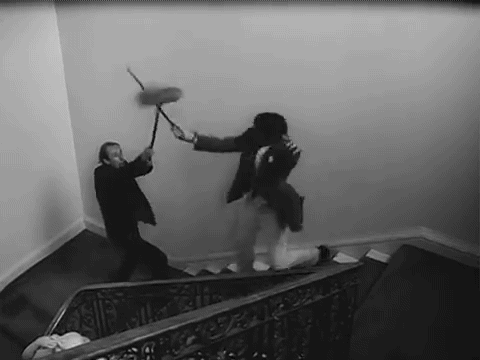
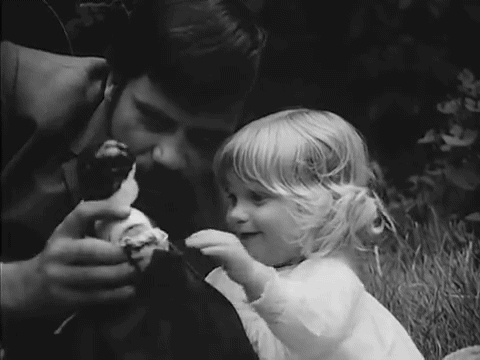
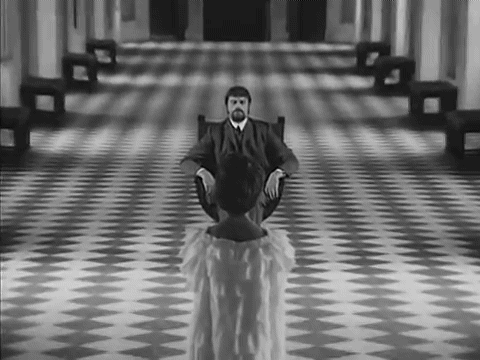
Films I've watched in 2022 (199/210)
Full film:
youtube
#films watched in 2022#The Debussy Film#Oliver Reed#Annette Robertson#Vladek Sheybal#Ken Russell#Claude Debussy#Melvyn Bragg#1960s films#motionpicturelover's gifs
5 notes
·
View notes
Text
God I hate melvyn Bragg. this man has some of the BEST academics on his podcast and he FUCKING INTERRUPTS THEM. they get invited on to a podcast to infodump about their specialisation and this podcast host DOESNT LET THEM SPEAK
#in our time#melvyn bragg#if i ever see melvyn were gonna throw hands#my most hated celebrity#the man makes me wanna murder men
2 notes
·
View notes
Text
Potter, Bragg, Southwark and suicide.
This week on Literary London, Nick Hennegan’s celebrity poem has a moving insight into Lord Melvyn Bragg’s past. He also introduces his Literary Pub of The Week – The George in Southwark, London.
www.BohemianBritain.com

View On WordPress
0 notes
Text
I listened to In Our Time on the Chartists. I thought of them as an early suffrage movement and didn't know they were so ambivalent and (possibly unintentionally) damaging to women's causes. Good listen.
0 notes
Text
‘Ah yes, I’m going to let this vaguely educational podcast play in the background while I work for some white noise’
Nasally American accent: ‘The IG-BOW tribe of AFRICA’

#not art#ITS PRONOUNCED#E-BOW. EEEEE#SORRY MELVYN BRAGG OF BBC IN OUR TIME#HOW COULD I HAVE EVER BETRAYED YOU#I HATE AMERICANS AND THEIR STUPID ACCENTS#NOT SORRY
5 notes
·
View notes
Text
English is likely the only language I will ever be fluent in, so I feel fully justified in saying: bastard language. Bastard language in every sense of the term. Litter of kittens with multiple fathers, that went out into the world and multiplied and hunted voraciously for more words.
#english language#I highly recommend 'the adventure of english' by Melvyn Bragg#it's a fascinating story of how the language began; developed; was nearly wiped out; survived; thrived; and then came the empire...
20 notes
·
View notes
Text
Paul, Porter and "I love you"
The accepted explanation of the writing of the Wings hit 'Silly Love Songs', including that offered several times over the years by Paul McCartney himself, is that it was a riposte to criticism of his more sentimental love songs as light and insignificant.
I was getting slagged off for writing luv songs. You see, I’m looking at love not from the perspective of ‘boring old love’, I’m looking at it like when you get married and have a baby. That’s pretty strong: it’s something deeper.
Paul McCartney, from Club Sandwich N°47/48, Spring 1988 (cited here)
Although I've never seen this discussed anywhere, it's long seemed to me that there's another possible influence on the song. To my knowledge no one has ever asked Paul directly about this, so what follows remains just my headcanon. (If anyone knows something to the contrary, please let me know!)
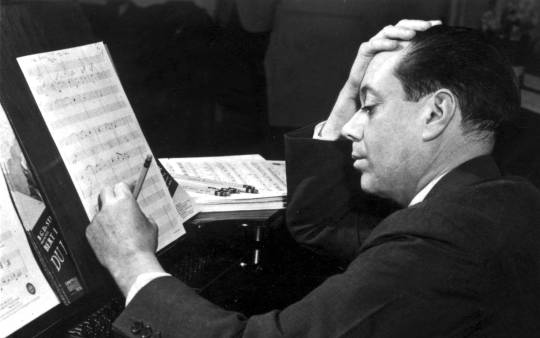
Cole Porter, another preternaturally talented Gemini lefty.
While writing the songs destined for the musical Mexican Hayride (1944), Cole Porter was presented with a challenge by his close friend Monty Woolley. (Woolley was an American actor who you may remember in the delicious role of the Professor in the Christmassy classic film The Bishop's Wife.) Woolley reasoned that because Porter's songwriting mastery came in part from his unhackneyed, fresh lyrical ideas, he wouldn't be able to write a hit song with the simple, rather too obvious, repeated refrain of "I love you".
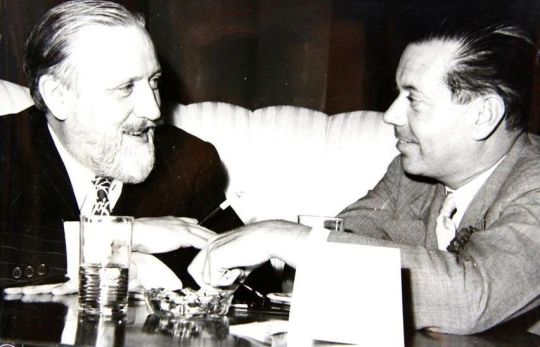
Monty Woolley with Cole Porter
It became a $25 wager, and Woolley also stipulated that his friend include reheated stale lines about spring and "birds on the wing". Porter duly wrote 'I Love You', which was the only standout in the show and in time topped the U.S. Hit Parade for several weeks, so he won his bet.
I would quite like to have been sort of a nineteen-twenties writer, 'cause I like that thing, you know. You know, up in top hat and tails and sort of coming on ... so, this kind of number, I like that thing. But, so this is just me doing it, and pretending I'm living in 1925.
Paul McCartney, talking about 'Honey Pie', interview with Radio Luxembourg, 1968
Melvyn Bragg: What's the longest you've ever worked over a song? 'Cause a lot of the lyrics, the more you read them, the more - and then they always read very straightforwardly and seamlessly, but when you read them again and again they're very complicated, and a lot of internal rhyming going on and a lot of extremely clever play. Does that - do you work on them quite hard? Do you go over them again and again?
Paul: Well, you know I'm a fan of all that, the old-fashioned writing. You know, sort of Sammy Cahn's era, you know, Cole Porter, and I do like all that, when it comes off! I mean, I hate just silly rhymes, just, you know - but when it really comes off those are great little things in songwriting. So I was always aware of that from people like Cole Porter. So I'd always try and put something like that kinda thing in, sorta little internal rhymes, you were always going for that kinda thing. ...
I can't explain it, you know, I've never been able to explain it, but it's like it comes in out of the blue. It sort of comes at you, you know, and - I'm sure the funnel that it's coming through's a lot to do with it, 'cause your little computer in here - my computer's sort of heard Billy Cotton Band Show going back there, you know and Cole Porter there, and this there and it's heard millions of influences through to Chuck Berry ...
from 'Paul McCartney: Songsmith' (The South Bank Show) January 1978
George Eells' book The Life That Late He Led: A Biography of Cole Porter was published in 1967 and remained the definitive life for about a decade. It mentions the 'I Love You' wager (p212), which became one of the better-known song origin anecdotes.
I have no idea if Paul McCartney knew this story. But I can imagine the professional challenge appealing to him, and perhaps especially tempting is the playful pairing of commercial reward with artistic defiance. 'Silly Love Songs', like 'I Love You' before it, was a big hit: Number 2 in the UK chart, and top of the Billboard chart in the States.
Did he dare himself to write a pop chorus that repeated the refrain "I love you", because Porter had done so? I dunno.* For what it's worth, I think the three melodic lines in the chorus of 'Silly Love Songs' exceed Porter's tune in both beauty and memorability.** (Although I do enjoy this sultry version recorded by Julie London.)
youtube
(*Just like I don't know if 'Why Don't We Do It In The Road' found any precedent in Porter's celebrated and racy-for-its-day song, 'Let's Do It, Let's Fall in Love'.)
(**But I mean, you'd expect me to say that, you know I've made paper dolls of him in his little Wings outfits tbf.)
#Apricot's headcanon#Silly Love Songs#Paul McCartney#Cole Porter#'I Love You'#this post brought to you by my weird varied interests
28 notes
·
View notes
Text
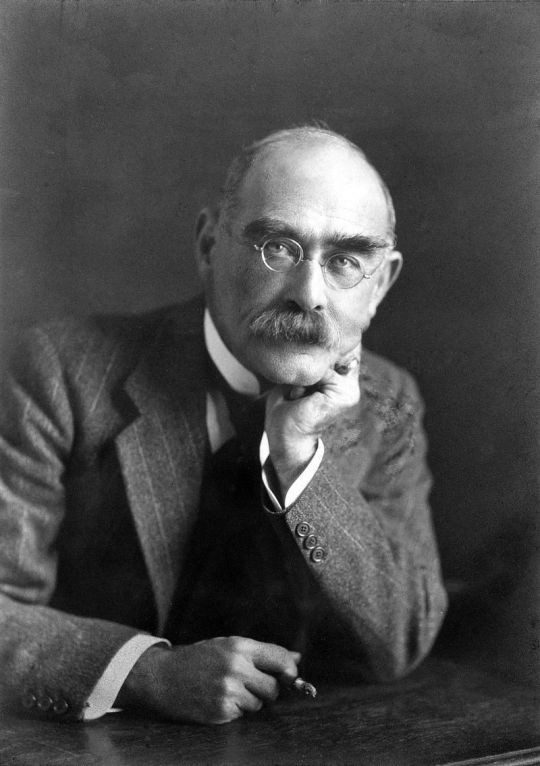
Arguably the single most influential figure in terms of how the fallen of the Great War were memorialised was Rudyard Kipling, whose own son, John, a second lieutenant in the Irish Guards, was reported (missing presumed) killed at Loos, aged 18. (His grave was not identified until 1992).
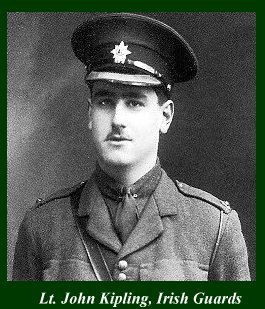
Rudyard Kipling, an internationally renowned novelist, poet, short story writer and journalist, was subsequently invited by the British government to help establish the Imperial War Graves Commission.
He applied the phrase ‘Known unto God’ for the graves in which the occupant was unidentified, and recommended that headstones be uniform and should have regimental identification wherever possible.
"...What knowledge I have of the feeling among officers and men, dead and alive, convinces me that their chief desire would be for distinctive regimental headstones which could be identified in every quarter of the world where a soldier of their regiment may be buried..."
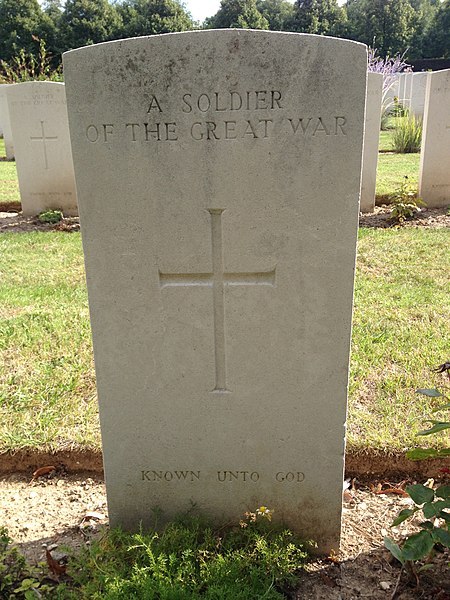
Perhaps his most significant contribution was establishing the policy that names on communal memorials be listed strictly in alphabetical order, regardless of rank, aristocratic background or class.
Upon his death in 1936, the War Graves Commission noted that Rudyard Kipling had either written, selected or approved every inscription on IWGC graves and memorials throughout the world, and had, on his own initiative, personally inspected memorial sites in Belgium, France, Egypt and Palestine.
Background from Melvyn Bragg's In Our Time (BBC Radio 4), the website of the Kipling Society, and BBC News (2016): Solving the Mystery of Rudyard Kipling's Son
#social history#working class history#rudyard kipling#the great war#world war one#first world war#british military#war memorial#military history#society#armistice day#remembrance day#lest we forget#history
46 notes
·
View notes
Note
What do you think of Danny Jones … I feel that he has a lot of subjective prejudice against historical figures …
I'm going to be honest with you - I've never watched any of his documentaries and I've never read any of his history books because his reputation proceeded him. I think he is a deeply unserious historian, best known for being a photogenetic white guy who fronts a lot of sensationalist documentaries and writing grimdark pop histories that often regurgitate the traditional and increasingly challenged view that Great Men Alone Make History, where what defines "greatness" is military might. He has been noted as ableist for his treatment of Henry VI, who he dubbed the "biggest villain" of the Wars of the Roses because of his incapacitating mental illness, and homophobic for his treatment of Edward II, who he says should have died via hot poker because it's "too good of a story" for a "humiliated, emasculated, possibly homosexual king" not have died through that way. As you say, he has a lot of subjective prejudice and at times, he's factually incorrect or ignorant of (or ignoring) more recent work in the area. I also resent him for popularising the view that Richard II as a child psychopath and carry a lifelong grudge that he was Melvyn Bragg's main source for his novel about the Peasants Revolt in which the 14-year-old Richard II pops a boner while watching executions because he's evillllll.
To me, he is popular because he is a photogenetic white guy who can pretend that he's Not Like Other Historians because he has tattoos and wears a leather jacket! and his version of medieval history is one that fits in the stereotypical fantasy of the Middle Ages as a hyper-violent, hyper-masculine time that's just like A Game of Thrones.
#i did read his retelling of a medieval ghost story (it was free and short) and found it pretty blah in terms of writing#i might have to read his bio of henry v that's coming out this year#i've read a lot of bad bios of my boy and at least this doesn't sound like its thesis is 'henry v is the worst man to have ever lived'#ask#anon
13 notes
·
View notes
Text
To mark his 1000th episode of In Our Time, Melvyn Bragg talks to Mishal Husain for Radio 4's Today programme.
1 note
·
View note